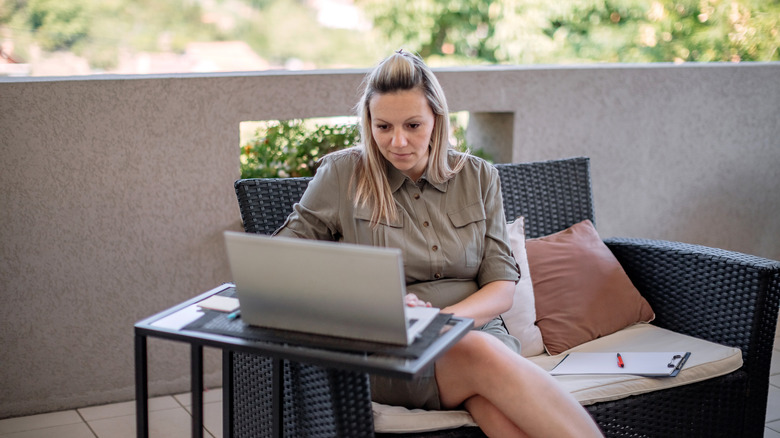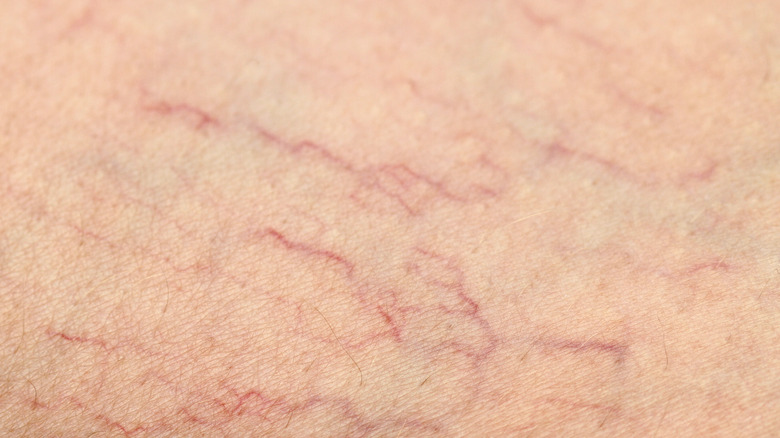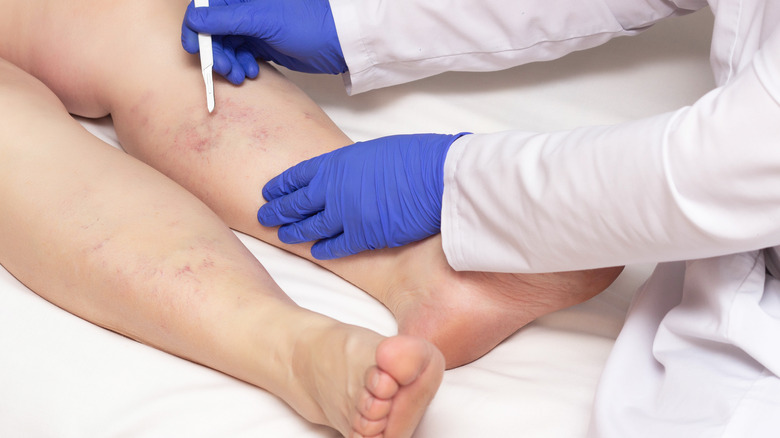Can You Develop Varicose Veins From Crossing Your Legs?
We have all heard myths and old wives' tales about the human body from superstitious parents, relatives, and friends who heard it from somewhere else. Most of these myths we come to realize are just that. Swallowing a watermelon seed won't cause the whole fruit to grow inside you, and if you don't wash behind your ears, potatoes won't really grow there. However, sometimes some of these little white lies slip through the cracks of our intellects and become actual facts in our minds. One such myth concerns veins.
Veins are responsible for carrying deoxygenated blood to the heart from all over the body. There are four types of veins: pulmonary, systemic, superficial, and deep veins. For fair-skinned folks, veins typically appear bluish or greenish depending on the warmth of your skin tone. A lot of people are insecure about the way their veins show up vividly, even through their skin or a tan. While all bodies and features are beautiful, some parents are guilty of spreading fallacies concerning these essential circulatory organs.
Crossing your legs will not cause varicose veins on its own
A varicose vein is a condition wherein a vein becomes enlarged with blood, twisted, and very visible through the skin. The veins that are susceptible to this condition are typically superficial veins. The truth about varicose veins is that they are not caused by simply crossing your legs, but can occur as a result of other basic things like standing for a prolonged period. There are a number of things that can cause this condition, such as pregnancy, a tumor, and obesity. They can also be influenced by genetic factors.
New York City cosmetic dermatologist Paul Jarrod Frank explained to Real Simple that people who inherited "weakness in the valves of the blood vessels" are susceptible to developing varicose veins if their bulging blue veins. He also stated that smaller veins that become varicose are more likely caused by sun damage.
If you have a superstitious parent, then you probably grew up being told to refrain from crossing your legs or else risk getting the dreaded varicose veins. But having varicose veins is not the end of the world. There are ways you can manage this condition.
Treating varicose veins
If you are prone to developing varicose veins, there are ways you can prevent it from happening. Dr. Doris Day, a clinical associate professor at NYU Medical Center, told Real Simple that one way to avoid varicose veins is to not sit or stand for too long. She also recommends you "elevate your legs when you can" in order to promote circulation back to the heart. Day also recommended using sunscreen on the legs of at least SPF 30.
Having varicose veins may make you insecure due to their appearance. Unfortunately, there is no cure for varicose veins right now, but there are treatments available that can minimize their appearance and any pain associated with them. Some healthcare professionals may advise you to wear compression socks to encourage blood circulation. Others may give you the option of having minimally-invasive procedures done to block the vein, or, if your case is extreme, surgery. Your treatment options depend on a variety of factors, so have a proper, in-depth conversation with your doctor to find out which treatment is best for your specific situation. And remember, the best time to treat varicose veins is during the colder months because that's when everyone is all covered up.


